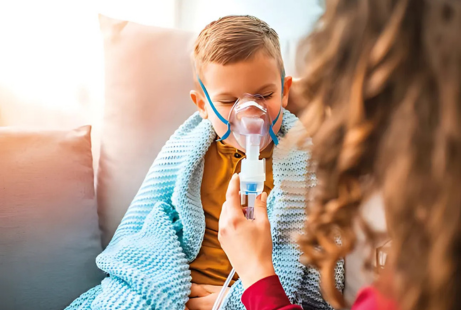Climate change refers to long-term shifts in temperature and weather patterns, primarily driven by human activities such as burning fossil fuels and deforestation. Its global significance lies in its widespread effects on natural systems and human societies, leading to more frequent extreme weather events, rising sea levels, and disruptions to ecosystems. These changes directly impact health by increasing the prevalence of heat-related illnesses, respiratory problems from poor air quality, and the spread of vector-borne diseases. Indirectly, climate change threatens food and water security, exacerbates mental health issues, and affects social determinants of health, highlighting the urgent need for comprehensive action.

Direct Health Effects of Climate Change
1. Extreme Weather Events
Extreme weather events, made stronger by climate change, can cause a lot of harm to people’s health. These events include hurricanes, floods, and wildfires. They lead to injuries, and deaths, and can affect mental health for a long time. People can get hurt badly during these events, and being forced to leave home can cause stress and sadness.
2. Heatwaves
Heatwaves are getting more common and worse because of climate change. They increase the chances of heat-related illnesses and deaths. When it’s very hot, people can get heat exhaustion or heatstroke, especially older people, young kids, and those already sick. Heatwaves also put pressure on hospitals and places where people can cool down.
3. Air Quality
Climate change makes air pollution worse. This hurts our breathing and can cause more asthma and allergies. Dust and chemicals in the air can worsen respiratory problems and even cause heart issues over time. People in cities and those with health problems are most at risk. It’s important to have strong rules and ways to clean the air to protect everyone’s health.
Indirect Health Effects of Climate Change
1. VectorBorne Diseases:
Climate change alters temperatures and precipitation patterns, creating new habitats for disease-carrying organisms such as mosquitoes. This expansion can lead to an increased spread of vectorborne diseases like malaria and dengue fever. Warmer temperatures and altered rainfall patterns can extend the geographic range of these diseases, exposing more populations to their risks.
2. Waterborne Diseases:
Climate change contributes to more frequent and intense weather events, including heavy rainfall and flooding. These events can overwhelm sanitation systems, leading to contamination of water sources with pathogens like cholera-causing bacteria. Increased flooding also disrupts water treatment processes, further heightening the risk of waterborne diseases.
3. Food Security:
Changes in climate patterns affect agricultural productivity and food availability. Shifts in temperature and rainfall can reduce crop yields or make farming conditions less predictable. This instability can lead to food shortages and price fluctuations, impacting nutrition and health outcomes, especially in vulnerable populations reliant on local agriculture.
Vulnerable Populations
● Children and the Elderly: Both age groups are particularly vulnerable to the health impacts of climate change due to physiological and developmental factors.
● Increased susceptibility: Children have developing immune systems, making them more susceptible to diseases exacerbated by climate change, such as respiratory illnesses and diarrheal diseases.
● Elderly susceptibility: The elderly often have preexisting health conditions that can be exacerbated by extreme heat or air pollution.
Global Efforts and Solutions
1. Public Health Strategies:
● Implementing early warning systems for extreme weather events.
● Enhancing healthcare capacity to manage heat-related illnesses.
● Promoting vector control programs to mitigate the spread of diseases.
- Policy Initiatives:
● Ratifying international agreements like the Paris Agreement.
● Developing local policies for climate-resilient infrastructure.
● Funding research and initiatives focused on climate health impacts.
- Community Resilience:
● Educating communities on climate risks and health impacts.
● Establishing community-based adaptation projects.
● Strengthening disaster preparedness and response mechanisms.
Conclusion
Climate change has serious effects on global health, so we need to act fast. Heatwaves are getting worse, and diseases like malaria and cholera are spreading more because of climate changes. Kids and older people are especially at risk because of their health and not having enough support. At Lifekare Medical Equipment Trading LLC, we’re here to help. Our medical products are designed to assist healthcare facilities in dealing with heat-related illnesses and other health issues linked to climate change. By promoting resilient healthcare practices and backing initiatives that prioritize climate health, we aim to support healthier communities. Together, by using smart medical solutions and taking action early, we can reduce the impact of climate change on public health and create a safer future for everyone.
